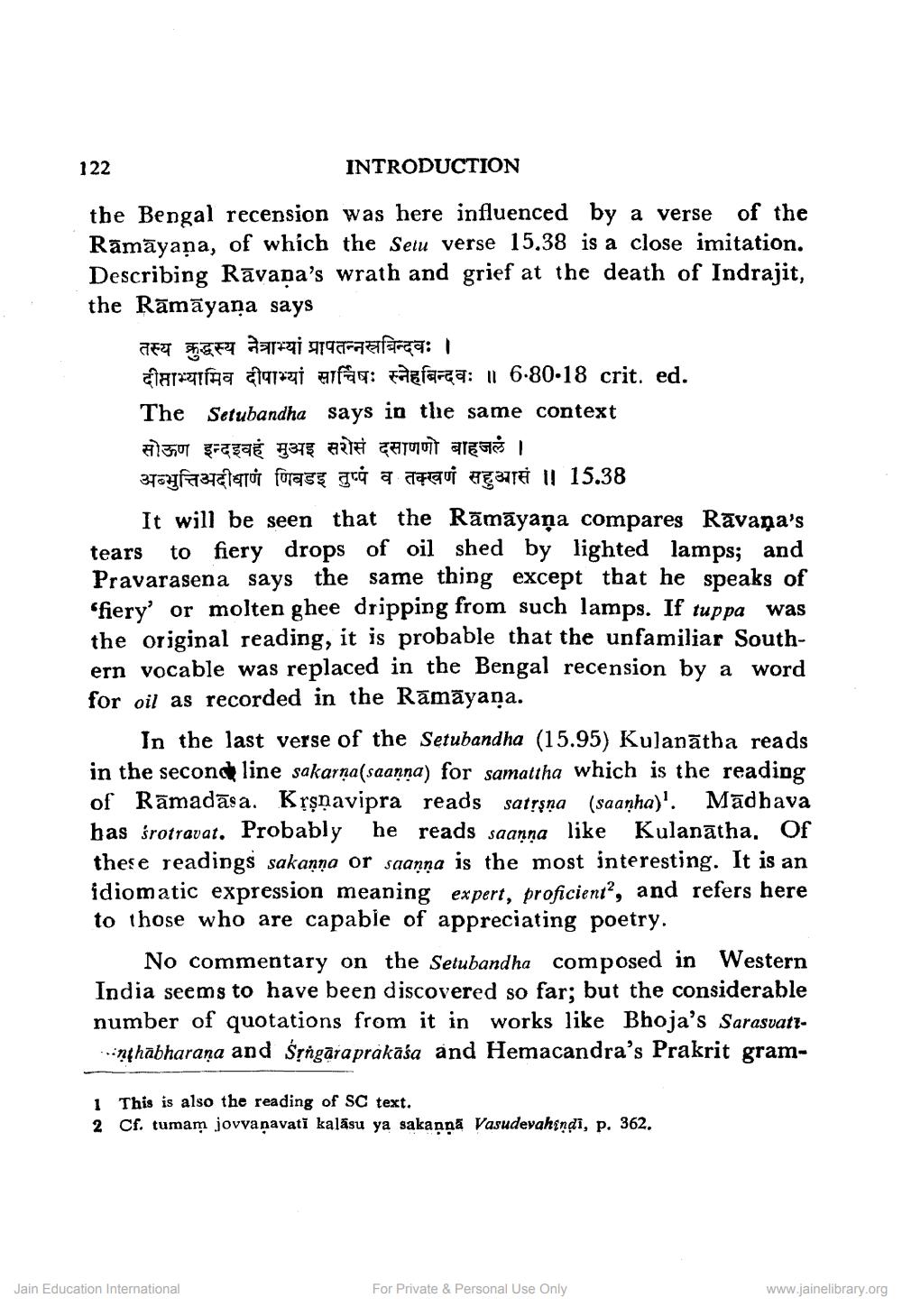________________
122
INTRODUCTION the Bengal recension was here influenced by a verse of the Rāmāyaṇa, of which the Setu verse 15.38 is a close imitation. Describing Rāvapa's wrath and grief at the death of Indrajit, the Rāmāyana says
तस्य क्रुद्धस्य नेत्राभ्यां प्रापतन्नस्रबिन्दवः । alarna ati af farea: 11 6.80.18 crit. ed. The Setubandha says in the same context सोऊण इन्दइवहं मुअइ सरोस दसाणणो बाहजलं । Tayfgatel au furasę grý a daqui aga 11 15.38
It will be seen that the Rāmāyaṇa compares Rāvana's tears to fiery drops of oil shed by lighted lamps; and Pravarasena says the same thing except that he speaks of 'fiery' or molten ghee dripping from such lamps. If tuppa was the original reading, it is probable that the unfamiliar Southern vocable was replaced in the Bengal recension by a word for oil as recorded in the Rāmāyaṇa.
In the last verse of the Setubandha (15.95) Kulanātha reads in the second line sakarna(saanna) for samattha which is the reading of Rāmadāsa. Krşħavipra reads satrşna (saanha)'. Madhava has śrotravat. Probably he reads saanna like Kulanātha. Of these readings sakanna or saanna is the most interesting. It is an idiomatic expression meaning expert, proficient”, and refers here to those who are capable of appreciating poetry.
No commentary on the Setubandha composed in Western India seems to have been discovered so far; but the considerable number of quotations from it in works like Bhoja's Sarasvatz
inthabharaṇa and śrågaraprakāśa and Hemacandra's Prakrit gram
1 This is also the reading of SC text. 2 Cf. tumam jovvanavati kalásu ya sakannā Vasudevahindi, p. 362.
Jain Education International
For Private & Personal Use Only
www.jainelibrary.org




